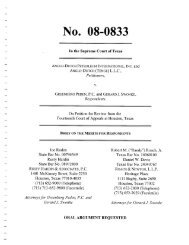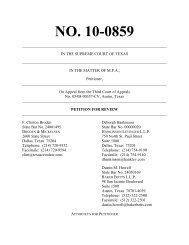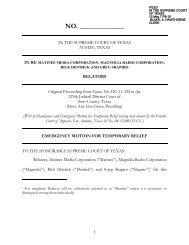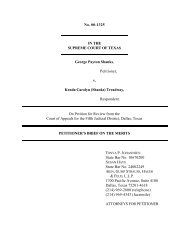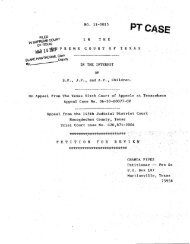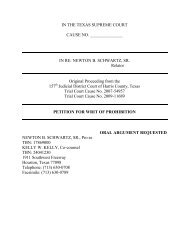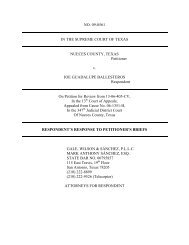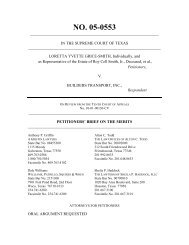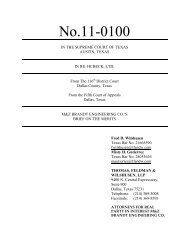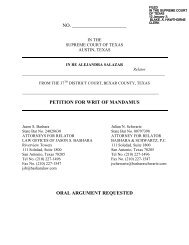DAIMLERCHRYSLER CORPORATION, Petitioner - Supreme Court ...
DAIMLERCHRYSLER CORPORATION, Petitioner - Supreme Court ...
DAIMLERCHRYSLER CORPORATION, Petitioner - Supreme Court ...
You also want an ePaper? Increase the reach of your titles
YUMPU automatically turns print PDFs into web optimized ePapers that Google loves.
[the plaintiffs] claim of injury is simply too speculative to constitute a legally cognizable<br />
tort injury.” Id. at 565. The case law demonstrates that it does not matter what state law<br />
cause of action a plaintiff alleges. Whether he or she asserts claims for negligence,<br />
breach of warranty, consumer protection violations, or equitable relief, the law recognizes<br />
that absent a present, manifest injury, the plaintiff lacks a legally viable injury.<br />
Rulings by federal courts go the same way. For example, in Briehl v. General<br />
Motors Covp., 172 F.3d 623 (8th Cir. 1999), plaintiffs brought a purported class action<br />
alleging that their vehicles contained anti-lock braking systems that had a “tendenc[y]” to<br />
fail by causing drivers to “misapply the brakes during emergencies where braking is<br />
required.” Id. at 626. The plaintiffs defined the proposed class to cover owners of the<br />
vehicles containing the allegedly defective braking systems, not cars in which the braking<br />
system actually failed. See id. at 626 n.6. The district court dismissed plaintiffs’ wide-<br />
ranging set of claims (i.e., fraudulent misrepresentation, fraudulent concealment, breach<br />
of implied warranty, violation of a state consumer protection statute, breach of express<br />
warranty, and breach of contract). See In re Gen. Motors Anti-Lock Brake Prods. Liab.<br />
Litig., 966 F. Supp. 1525, 1528 (E.D. Mo. 1997). The Eighth Circuit affirmed. Noting<br />
that “[c]ourts have been particularly vigilant in requiring allegations of injury or damages<br />
in products liability cases,” the court held that<br />
[wlhere, as in this case, a product performs satisfactorily and never exhibits<br />
an alleged defect, no cause of action lies. Since the Plaintiffs have failed to<br />
allege any manifest defect and their vehicles perform in a satisfactory<br />
manner, the District <strong>Court</strong> was correct when it dismissed the Plaintiffs’<br />
Original Complaint.<br />
17





